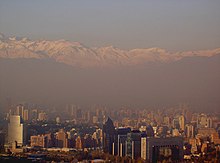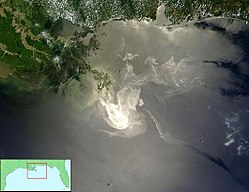 Congress on Tuesday passed legislation to better protect sharks, creatures that swam the oceans before the age of dinosaurs but now are being killed by the millions for their fins, a delicacy used in a traditional Chinese soup.
Congress on Tuesday passed legislation to better protect sharks, creatures that swam the oceans before the age of dinosaurs but now are being killed by the millions for their fins, a delicacy used in a traditional Chinese soup.
Conservationists called the measure a major step to save a species in trouble. They estimate that 73 million sharks are killed annually to support the shark fin trade, and that 30 percent of the world's species are threatened or nearly threatened with extinction. The loss of too many top predators can disrupt the balance of the populations of other species.
Congress passes bill to help save world's sharks
Polar bears can be saved by emissions cuts, study says
 Cutting global greenhouse emissions might yet save the polar bear and its Arctic habitat, according to scientists in the US. It has been suggested that emissions of greenhouse gases have already put the Arctic ice cap and the polar bear on an irreversible path towards extinction.
Cutting global greenhouse emissions might yet save the polar bear and its Arctic habitat, according to scientists in the US. It has been suggested that emissions of greenhouse gases have already put the Arctic ice cap and the polar bear on an irreversible path towards extinction.
But a new study suggests rapid emission cuts could help preserve ice cover to save the iconic bear. Details are published in the academic journal Nature.
E.P.A. Delays Tougher Rules on Emissions
 The Obama administration is retreating on long-delayed environmental regulations — new rules governing smog and toxic emissions from industrial boilers — as it adjusts to a changed political dynamic in Washington with a more muscular Republican opposition. The move to delay the rules, announced this week by the Environmental Protection Agency, will leave in place policies set by President George W. Bush. President Obama ran for office promising tougher standards, and the new rules were set to take effect over the next several weeks.
The Obama administration is retreating on long-delayed environmental regulations — new rules governing smog and toxic emissions from industrial boilers — as it adjusts to a changed political dynamic in Washington with a more muscular Republican opposition. The move to delay the rules, announced this week by the Environmental Protection Agency, will leave in place policies set by President George W. Bush. President Obama ran for office promising tougher standards, and the new rules were set to take effect over the next several weeks.
Now, the agency says, it needs until July 2011 to further analyze scientific and health studies of the smog rules and until April 2012 on the boiler regulation. Mr. Obama, having just cut a painful deal with Republicans intended to stimulate the economy, can ill afford to be seen as simultaneously throttling the fragile recovery by imposing a sheaf of expensive new environmental regulations that critics say will cost jobs.
American urban lake pollution traced to parking lot seal coat
 A black sealant sprayed on parking lots, driveways and playgrounds turns out to be the largest contributor to the rise of a toxic pollutant in urban lakes and reservoirs across America, according to a new U.S. Geological Survey study.
A black sealant sprayed on parking lots, driveways and playgrounds turns out to be the largest contributor to the rise of a toxic pollutant in urban lakes and reservoirs across America, according to a new U.S. Geological Survey study.
Scientists saw concentrations of polycyclic aromatic hydrocarbons (PAHs) going up rapidly in the 1990s in areas of urban sprawl. PAHs have been known as a probable human carcinogen since the 19th century, when cancer struck chimney sweeps, said Peter Van Metre, a USGS scientist and a principal author of the report. PAHs also are toxic to fish and other aquatic plant and animal life.
Monsanto GMO sugarbeets to be destroyed: court
 U.S. District Court Judge Jeffrey White in August banned the planting and sales of Monsanto's "Roundup Ready" biotech sugar beets after determining that their approval in 2005 by the USDA was illegal. He said the government must conduct a thorough environmental review before approving the crop to comply with the law.
U.S. District Court Judge Jeffrey White in August banned the planting and sales of Monsanto's "Roundup Ready" biotech sugar beets after determining that their approval in 2005 by the USDA was illegal. He said the government must conduct a thorough environmental review before approving the crop to comply with the law.
Earthjustice, a consumer group that brought the case against the USDA and had asked the judge to order the young plants be destroyed, said the action was the first court-ordered destruction of a GMO crop.
Offshore oil drilling ban to be maintained in key areas
 Interior Secretary Ken Salazar announced Wednesday afternoon that the Obama administration will not allow offshore oil drilling in the eastern Gulf of Mexico or off the Atlantic and Pacific coasts as part of the next five-year drilling plan, reversing two key policy changes President Obama announced in late March.
Interior Secretary Ken Salazar announced Wednesday afternoon that the Obama administration will not allow offshore oil drilling in the eastern Gulf of Mexico or off the Atlantic and Pacific coasts as part of the next five-year drilling plan, reversing two key policy changes President Obama announced in late March.
"We are adjusting our strategy in areas where there are no active leases," Salazar told reporters in a phone call, adding that the administration has decided "not expand to new areas at this time" and instead "focus and expand our critical resources on areas that are currently active" when it comes to oil and gas drilling
Special report: How BP's oil spill costs could double
 Last month, BP increased by $8 billion the financial provisions it was taking for the Gulf of Mexico oil spill; the company's shares rose. Better-than- expected underlying profits and upbeat comments from new Chief Executive Bob Dudley were taken by the market as a sign the company had turned the corner and would soon return to pumping out steadily rising dividends.
Last month, BP increased by $8 billion the financial provisions it was taking for the Gulf of Mexico oil spill; the company's shares rose. Better-than- expected underlying profits and upbeat comments from new Chief Executive Bob Dudley were taken by the market as a sign the company had turned the corner and would soon return to pumping out steadily rising dividends.
Key to this sanguine outlook is confidence that the new estimate of the total cost of the spill -- $40 billion -- will be sufficient.
More Articles...
Page 150 of 201

 Environmental Glance
Environmental Glance






























